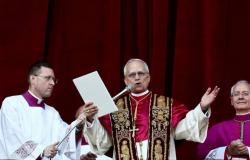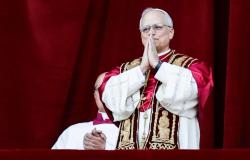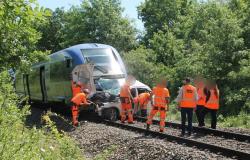The report, consulted by “opinion”, also reports an economic growth of 4.3%for Morocco, in a context marked by stable inflation at 1.3%, despite an unemployment rate of 13.6%. With a population of 37 million inhabitants, the kingdom benefits from a strategic asset which strengthens its position as an industrial and regional financial hub.
50% of the initiatives of the 2023-26 Road Leaf made
In the same context, it should be remembered that 98 % of the actions provided in the 2023-2026 roadmap for improving the business climate in Morocco are currently being implemented, 50 % of which are already completed. This is indicated by Karim Zidane, Minister Delegate in charge of investment, during a press briefing held on April 10, 2025, after the Council of Government. He stressed that, in accordance with high royal instructions, investment is now a fundamental pillar of the development strategy adopted by the government. This strategy aims to establish both equitable and lasting growth throughout the national territory.
This performance is also explained by the rigorous application of this roadmap, which reflects the strong political will in favor of a more competitive business environment, and better suited to the requirements of national and international investors.
Priority to governance and innovation
In a declaration to “opinion”, the economist Omar Bakkou said that the figure of $ 38 billion in foreign direct investment, although it is in the observed averages, represents a good result for Morocco. However, he pointed out that it is essential to maintain this pace over time in order to consolidate the achievements. He also recalled that beyond the volume of foreign direct investments (IDE), other indicators must be taken into account to assess the quality of the business climate. He notably underlined the importance of regulatory stability, the transparency of procedures and administrative performance.
As an extension of this analysis, M. Bakkou said several structural elements directly influence this climate. Among them are the quality of the judicial system, the effectiveness of the economic regulations in force, as well as the increased opening of the sectors to competition as many essential levers to promote an environment conducive to investment. “Some sectors, such as waste management or innovation, depends on public incentives. They require special support, because their profitability is often deferred. Finally, it has stressed that governance must be strengthened. It is essential to succeed in the application of the new investment charter,” he added.
Cap on infrastructure
Aware that competitiveness is based on solid and modern infrastructure, the Kingdom engages in an ambitious and sustained development. On the rail level, it rises in the first African row with the largest network on the continent, extending over 3,815 kilometers, which places it in 33rd in the world. Added to this is an accelerated modernization of motorway and airport infrastructure, carried by major projects, such as the extension of the TGV to Marrakech and Agadir. In the port field, Morocco confirms its leadership with Tangier Med, now the first port of Africa, a real strategic crossroads between Europe, the Atlantic and the Mediterranean.
-On the component of industrial equipment, Morocco continues to strengthen its attractiveness by attracting an increasing number of large international groups, especially Chinese, which choose the kingdom to set up factories of electric vehicles and battery components. This dynamic is fully part of the national industrial strategy, carried by the ambition to make the country a regional reference hub of reference in the field of electric mobility, a key sector of the global energy transition.
77% of marked international trade
On the commercial level, Morocco is illustrated by strong integration into the global economy, supported by a large network of free trade agreements with strategic partners, such as the European Union, the United States, Turkey, and more recently the Zlecaf (African continental free trade area). These agreements cover 77% of the kingdom’s foreign trade, providing investors with privileged access to more than a billion consumers.
Tax reforms: a unified framework by 2026
The Moroccan legislative landscape supports this development, carried by the new investment charter, a real lever for a promising economic future. In the background, the current tax reforms shape a unified tax framework by 2026, thus creating an environment conducive to investment. This dynamic is reinforced by targeted exemptions and strategic incentives, aimed at boosting industrial areas and accelerating the development of key economic poles. Morocco is thus positioned as a fertile ground for innovation and major projects.
Digital: Morocco 2nd in Africa
Morocco stands out as a major digital player in Africa, winning the second continental place in terms of digital quality of life, according to the Surfshark classification. This result reflects the constant boom in telecommunications infrastructure and a rigorous 5G preparation strategy, the launch of which is scheduled for 2025.
On the economic level, the kingdom shows remarkable resilience and maintains the course, despite the uncertainties of the global context.
Despite the turbulence of the global economy, the country displays sustained growth of 4.3 % and maintains an inflation controlled at 1.3 %, proof of rigorous and adaptable economic management. This solidity is reinforced by an assertive opening strategy: thanks to an extensive network of free trade agreements, the kingdom easily accesss European, American and Asian markets, thus consolidating its gateway position between the continents.
On the tourist level, Morocco confirms its status as a first African destination in 2024 with 17.4 million admissions, thus recording remarkable growth of 35% compared to the previous year, according to the UN Tourism data. This tourist dynamism reflects not only the attractiveness of the country as a resort, but it is also part of a broader national strategy aimed at making the kingdom a locomotive of economic, social and sustainable development on a continental scale.








